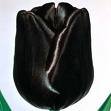
Each week Christ Liberation Fellowship the church I serve as pastor shares a building with three other congregations. Yes it takes some doing and there probably are too many signs on the lawn. And please don’t ask why we have four churches meeting in one building each Sunday. I can tell you that the original congregation (a PCUSA church) still meets there and we’ve leased it from them since the fall of 2001. The other churches just began to worship there this past year.
Of interest is the character of our latest two additions. One is your straight up, standard traditional black church. The pastor (who is a good brother in the Lord) brings the hoop each and every Sunday. You can hear our brother clear across the street when he gets going. Those wanting a down home, traditional church worship experience need look no further. The other church is pastured by a follower of Creflo Dollar. He too is a nice man who has always greeted me warmly and asked if there’s anything he could to help me and CLF.
I once had the opportunity to hear him before his congregation (they used to meet in the fellowship hall and I had forgotten something and had to retrieve it from the kitchen) and unlike our traditional brother he does not bring the hoop. In fact it appears that though they employ some of the same musical styles (one uses recorded music, the other live) there seems little in common between them.
That shouldn’t surprise us. The black church has never been 100% monolithic in our collective ‘blackness’. I distinctly remember me and a bunch of young (and quite ignorant) Pentecostal friends laughing with incredulity after we watched a neighborhood AME church sit stone cold through a concert featuring one of our favorite choirs. We remarked that had that been our church we would have ‘thrown down’. As much as we’d like the rest of the church to believe it we really don’t have a single unified expression of blackness within the black church. The emergence of Word of Faith theology and churches have changed our style, content, message and direction. Even some who hold to the old time traditional black church take issue with this new kind of church because they don’t view it’s leaders as holding to the one sacred cow that has marked the black church as the black church whether it as National Baptist, Progressive Baptist, AME, AME Zion or COGIC.
And for many that's what made the black church the black church. It wasn’t mainly how we hooped, shouted or sang, but our commitment to the cause and issues that were important to African-Americans. This cannot be dismissed in light of the reality that for much of our existence black folks in America have dwelt in the shadow of constant terror. Our homes, neighborhoods and lives could be threatened, assaulted and taken on a whim and with no hope of redress. Immediately following 911 Americans filled churches of all kinds. Think of how differently evangelical Christianity would have been had evangelicals lived under the consistent threat of irrational yet brutal terror? Our sacred cow was the fact that the black church existed partly and some would say primarily to advance the cause and issues of black people in America. And that is the sacred cow that we must challenge.
As reformed believers I’m convinced that we must call the church to move beyond placing the temporal concerns of black folks at the center of our agenda and serve our people in the way that addresses their unfelt but very real needs. And you can do that while adding a hoop onto the end of each and every sermon or just standing up and speaking in a conversational tone. You can sing classic hymns or rock to the latest gospel music. The issue isn’t the style of the black church which will change and change again, but the substance of our message. Does the black church exist primarily to advance the agenda of black people in America or are we here to call all Americans and all people to submit to and pursue the agenda of God’s eternal kingdom through Jesus Christ? In the end will black people be better of once we fully integrate within America, level the playing field and finally enjoy all of the benefits of the land of our toil and sojourn or will we realize that it really is better to be a doorkeeper in God’s house than to thrive in the land of the wicked? An even more important question is which of those paths will the church lead the souls of black folks to travel down?
To Him Who Loves Us…
Pastor Lance

No comments:
Post a Comment